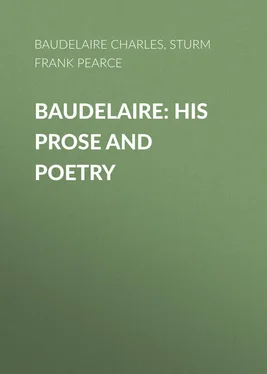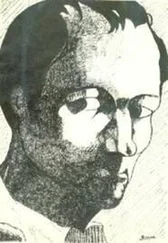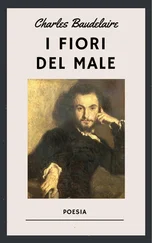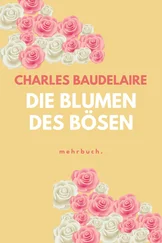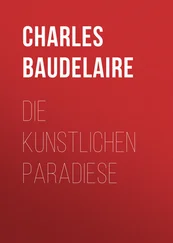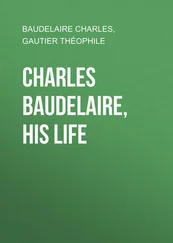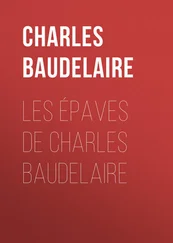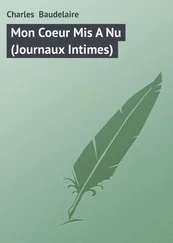Charles Baudelaire - Baudelaire - His Prose and Poetry
Здесь есть возможность читать онлайн «Charles Baudelaire - Baudelaire - His Prose and Poetry» — ознакомительный отрывок электронной книги совершенно бесплатно, а после прочтения отрывка купить полную версию. В некоторых случаях можно слушать аудио, скачать через торрент в формате fb2 и присутствует краткое содержание. Жанр: foreign_antique, foreign_prose, на английском языке. Описание произведения, (предисловие) а так же отзывы посетителей доступны на портале библиотеки ЛибКат.
- Название:Baudelaire: His Prose and Poetry
- Автор:
- Жанр:
- Год:неизвестен
- ISBN:нет данных
- Рейтинг книги:5 / 5. Голосов: 1
-
Избранное:Добавить в избранное
- Отзывы:
-
Ваша оценка:
- 100
- 1
- 2
- 3
- 4
- 5
Baudelaire: His Prose and Poetry: краткое содержание, описание и аннотация
Предлагаем к чтению аннотацию, описание, краткое содержание или предисловие (зависит от того, что написал сам автор книги «Baudelaire: His Prose and Poetry»). Если вы не нашли необходимую информацию о книге — напишите в комментариях, мы постараемся отыскать её.
Baudelaire: His Prose and Poetry — читать онлайн ознакомительный отрывок
Ниже представлен текст книги, разбитый по страницам. Система сохранения места последней прочитанной страницы, позволяет с удобством читать онлайн бесплатно книгу «Baudelaire: His Prose and Poetry», без необходимости каждый раз заново искать на чём Вы остановились. Поставьте закладку, и сможете в любой момент перейти на страницу, на которой закончили чтение.
Интервал:
Закладка:
And one weeps with him in the ways Lethean,
And stains with tears her changing bosom chill;
That obscure Venus of the hollow hill,
That thing transformed which was the Cytherean,
With lips that lost their Grecian laugh divine
Long since, and face no more called Erycine
A ghost, a bitter and luxurious god.
Thee also with fair flesh and singing spell
Did she, a sad and second prey, compel
Into the footless places once more trod,
And shadows hot from hell.
And now no sacred staff shall break in blossom,
No choral salutation lure to light
A spirit with perfume and sweet night
And love's tired eyes and hands and barren bosom.
There is no help for these things; none to mend,
And none to mar; not all our songs, O friend,
Will make death clear or make life durable.
Howbeit with rose and ivy and wild vine
And with wild notes about this dust of thine
At least I fill the place where white dreams dwell
And wreathe an unseen shrine.
Sleep; and if life was bitter to thee, pardon,
If sweet, give thanks; thou hast no more to live
And to give thanks is good, and to forgive.
Out of the mystic and the mournful garden
Where all day through thine hands in barren braid
Wove the sick flowers of secrecy and shade,
Green buds of sorrow and sin, and remnants gray,
Sweet-smelling, pale with poison, sanguine-hearted,
Passions that sprang from sleep and thoughts that started,
Shall death not bring us all as thee one day
Among the days departed?
For thee, O now a silent soul, my brother,
Take at my hands this garland, and farewell.
Thin is the leaf, and chill the wintry smell,
And chill the solemn earth, a fatal mother,
With sadder than the Niobean womb,
And in the hollow of her breasts a tomb.
Content thee, howsoe'er, whose days are done:
There lies not any troublous thing before,
Nor sight nor sound to war against thee more,
For whom all winds are quiet as the sun,
All waters as the shore.
[From inside-leaf: Charles Pierre Baudelaire was born in Paris, France, on April 9,1821, and died there on August 31, 1867. Flowers of Evil was published in 1857 by Baudelaire's friend Auguste Poulet Malassis, who had inherited a printing business at Alençon. Some of them had already appeared in the Revue des Deux Mondes. The poet, the publisher, and the printer were found guilty of having offended against public morals.]
PREFACE
In presenting to the American public this collection in English of perhaps the most influential French poet of the last seventy years, I consider it essential to explain the conditions under which the work has been done.
Baudelaire has written poems that will, in all likelihood, live while poetry is used as a medium of expression, and the great influence that he has exercised on English and continental literature is mainly due to the particular quality of his style, his way of feeling or his method of thought. He is a master of analytical power, and in his highest ecstasy of emotional expression, this power can readily be recognized. In his own quotation he gave forth his philosophy on this point:
"The more art would aim at being philosophically clear, the more will it degrade itself and return to the childish hieroglyphic: on the other hand, the more art detaches itself from teaching, the more will it attain to pure disinterested beauty… Poetry, under pain of death or decay, cannot assimilate Herself to science or ethics. She has not Truth for object, she has only Herself." What appears at first glance in the preceding phrases to be a contradiction is really a confirmation of Baudelaire's conception of the highest understanding of æsthetic principle. Baudelaire's ideal beauty is tempered with mystery and sadness, the real too, but never the commonplace.
No poet has brought so many new ideas in sensation into a literary style. Intellectually he is all sensation, though he seldom degenerates into abstract sentimentality. This sum totality of the power of absorbing external sensation is Baudelaire. From the effect of his objectivity his art expresses itself as if solely subjective. This condition of mind and art makes him most difficult to translate into another language, in particular, English.
This collection of his verse and prose is gathered from those experiments in translation which I think will most effectively convey to the English reader those qualities that made Baudelaire what he is. There are numerous translations from Baudelaire in English but most of them may be dismissed as being seldom successful. Mr. Arthur Symons' translation of some of the prose poems is a most beautiful adventure in psychological sensations, effective though not always accurate in interpretation. Mr. F. P. Sturm's effort with the Flowers of Evil and the Prose Poems is always accurate, sometimes inspired, and often a tour de force of translation. Mr. W. J. Robertson's translations from the Flowers of Evil is the most successful of all. He maintains with amazing facility all the subtlety, beauty and one might also say the perfume of Baudelaire's verse. Mr. Shipley does a most meritorious work in his translations from the prose poems, and the reader will be everlastingly grateful to him for his fine painstaking translation of the Intimate Papers from Baudelaire's unpublished novels.
There are few interesting or valuable essays on the mind and art of Baudelaire in English, but the reader will find the following critical appreciations to be of inestimable use in the study of the poet:
"The Influence of Baudelaire": G. Turquet-Milnes (Constable: 1913); "The Baudelaire Legend": James Huneker (Egoists: Scribner's: 1909); and Théophile Gautier's essay on Baudelaire, of which an excellent English translation has been made by Prof. Sumichrast.
I think that this anthology will give the reader an intelligent understanding of the mind and art of a very great French poet.
T. R. SMITH.June, 1919.
CHARLES BAUDELAIRE:
A STUDY BY F. P. STURM
I
Charles Baudelaire was one of those who take the downward path which leads to salvation. There are men born to be the martyrs of the world and of their own time; men whose imagination carries them beyond all that we know or have learned to think of as law and order; who are so intoxicated with a vision of a beauty beyond the world that the world's beauty seems to them but a little paint above the face of the dead; who love God with a so consuming fire that they must praise evil for God's glory, and blaspheme His name that all sects and creeds may be melted away; who see beneath all there is of mortal loveliness, the invisible worm, feeding upon hopes and desires no less than upon the fair and perishable flesh; who are good and evil at the same time; and because the good and evil in their souls finds a so perfect instrument in the refined and tortured body of modern times, desire keener pleasure and more intolerable anguish than the world contains, and become materialists because the tortured heart cries out in denial of the soul that tortures it. Charles Baudelaire was one of these men; his art is the expression of his decadence; a study of his art is the understanding of that complex movement, that "inquietude of the Veil in the temple," as Mallarmé called it, that has changed the literature of the world; and, especially, made of poetry the subtle and delicate instrument of emotional expression it has become in our own day.
We used to hear a deal about Decadence in the arts, and now we hear as much about Symbolism, which is a flower sprung from the old corruption – but Baudelaire is decadence; his art is not a mere literary affectation, a mask of sorrow to be thrown aside when the curtain falls, but the voice of an imagination plunged into the contemplation of all the perverse and fallen loveliness of the world; that finds beauty most beautiful at the moment of its passing away, and regrets its perishing with a so poignant grief that it must needs follow it even into the narrow grave where those "dark comrades the worms, without ears, without eyes," whisper their secrets of terror and tell of yet another pang —
Читать дальшеИнтервал:
Закладка:
Похожие книги на «Baudelaire: His Prose and Poetry»
Представляем Вашему вниманию похожие книги на «Baudelaire: His Prose and Poetry» списком для выбора. Мы отобрали схожую по названию и смыслу литературу в надежде предоставить читателям больше вариантов отыскать новые, интересные, ещё непрочитанные произведения.
Обсуждение, отзывы о книге «Baudelaire: His Prose and Poetry» и просто собственные мнения читателей. Оставьте ваши комментарии, напишите, что Вы думаете о произведении, его смысле или главных героях. Укажите что конкретно понравилось, а что нет, и почему Вы так считаете.
